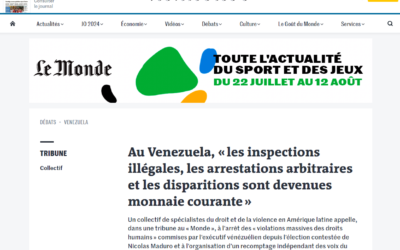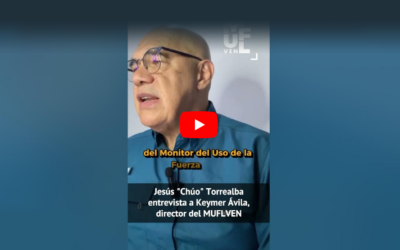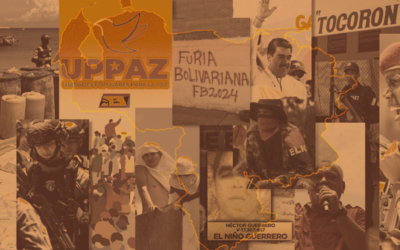July 3, 2017
Keymer Ávila | @Keymer_Avila
There are two powers of the Venezuelan Public Ministry that define our criminal process as accusatory: the monopoly of criminal action and the direction of criminal investigation . Both try to be undermined with sentence 469, which responds to a request for interpretation made by the Ombudsman of some articles that are very clear, both in the Constitution of the Bolivarian Republic of Venezuela (CRBV) and in the legislation referred to therein. Now, as I always tell my students, the laws and their interpretation are not up in the air, you have to see them in their specific context, get to know the actors involved and the interests to which they respond. This is fundamental to trying to understand these types of decisions.
Regarding the first jurisdiction mentioned, the sentence grants “procedural representation” to the Ombudsman’s Office in criminal cases for violation of Human Rights (points 3.3 and 3.4). It should be noted that this representation must be given strictly under the terms of article 123 of the COPP, which is limited only to the complaint, that is, to make a qualified complaint to which a series of requirements and formalities are required (articles 274 to the 281 of the COPP), in cases in which the Public Ministry has already initiated a procedure. Although all this seems to have the intention of sharing with the Ombudsman the criminal action that corresponds to the Public Ministry, this is not possible.. The Public Ministry retains the monopoly of criminal action, despite the intentions of the Ombudsman and the Magistrates. This attempt is not a novelty, it has already appeared before in the last reform processes of the COPP.
Regarding the criminal investigation, the sentence clearly generates a clash of powers, since it gives the Ombudsman the power to request investigative procedures from the auxiliary bodies, which could hinder and hinder the work of the Public Ministry (point 3.7), thus diminishing the direction that this entity must exercise on the investigation, as established in article 285.3 of the CRBV. Additionally, it is important to highlight that the Public Ministry has a very special constitutional competence when it comes to enforcing the criminal liability of public officials due to the exercise of their functions, which is enshrined in numeral 5 of the same article 285 of the CRBV. The aforementioned sentence, consequently, unconstitutionally generates a duplication of powers that, in this country context, It would cause greater difficulties in adjudicating responsibilities in terms of violations of Human Rights, increasing impunity in these cases. All of this clearly violates the aforementioned constitutional norms. These political intentions to undermine the authority of the Public Ministry are also evident in theLaw on the Investigative Police Service , in which some actors linked to the sectors that today promote the sentences that are the object of these comments participated.
Thus, the legal and procedural uncertainty in cases of Human Rights violations deepens even more, since with this sentence there could be different official, contradictory or alterative versions of the same fact, which could be administered discretionally to benefit those who they hold the political and warlike power at certain junctures. As the Prosecutor recently pointed out: with this sentence, what is sought is that in cases like Pernalete’s the propaganda thesis of the bolt pistol is imposed and not that of the tear gas bomb fired by the GN , as actually happened. The evidence would not matter then , what would end up being imposed isthe reason of state . There are those who want “ tailor-made criminal investigations ”.
The work of the Ombudsman is not jurisdictional or procedural, it is monitoring, reporting, and surveillance so that State entities fulfill their role
The work of the Ombudsman is not jurisdictional or procedural, it is monitoring, denouncing, monitoring so that the State entities fulfill their role, it is not to replace the institutions in the exercise of their tasks. In the case at hand, the Ombudsman must follow up on the actions of the Public Ministry, urge this institution to act against officials responsible for violations of Human Rights (article 281.4 CRBV), this does not mean that it must exercise such functions itself. . Even less in criminal matters whose area of competence corresponds to the Public Ministry (article 285, numerals 3, 4 and 5 of the CRBV).
Even more serious is sentence 470 in which the Constitutional Chamber arbitrarily annuls the appointment of the Deputy Prosecutor, that was the intemperate response to the request made by the Attorney General against the electoral bases of the unconstitutional and unconsultation of the constituent . In addition, they adjudicate to themselves the powers of the General Prosecutor and intend to designate the Deputy Prosecutor, flagrantly violating articles 286 and 187.24 of the CRBV and 25.3 of the Organic Law of the Public Ministry. One of the most scandalous aspects is that such designation was not the object of the cause, so it is also an incongruous decision because it goes beyond what was requested ( ultimate); at the same time, it is also unmotivated, which infringes the right to effective judicial protection enshrined in article 26 of the CRBV. The Chamber does not even have jurisdiction to hear about that designation, much less to designate a new Deputy Prosecutor. Therefore, they once again make an inexcusable error, in a similar way as they did with sentences 155 and 156, they insist on arrogating the powers of the National Assembly. What compromises, once again, the subsequent responsibilities of these Magistrates . Not to mention that if they made this designation they would be committing, at least, the crime of usurpation of functions.
These decisions are made at a time when the level of rejection and lack of credibility of the Ombudsman’s Office reaches 80% , while the Public Ministry has increased its credibility and legitimacy in recent months (47.3%) . In other words, these sentences not only have vices of unconstitutionality and illegality, they also lack legitimacy and political relevance.
This discussion should not be seen as purely juridical or legal, it is fundamentally political, it is about setting effective limits to the punitive, police and military power of the State. It is necessary to strengthen and make the checks and balances between public powers a reality , at the same time that each institution must be required to fulfill its corresponding role. We cannot analyze these decisions in a decontextualized way, there is a progressive process of dismantling the constitutional State, sentences 155 and 156 are one of the rudest expressions of that process, their objective was to pulverize the National Assembly because they found it uncomfortable. Now with sentences 469 and 470 they are trying to do the same with the Public Ministry, as a previous step to get the Attorney General out of the game , who in recent months has been denouncing this regressive process regarding our rights and our institutions.
It is difficult to try to follow up and even more so to understand all these actions against the rule of law. The tactic is to systematically launch, with a short time difference, different actions , shows , events, one on top of the other, such as a pastiche., in which the different layers end up confusing each other. You have not finished understanding something when they throw something else away. It’s not accidental, nor is it entirely crazy. It is a planned madness, programmed. They are a series of distracting elements that are exercised from power, to ensure their gradual progress towards a system that does not contain them in any way. This was already warned by Orwell in his novel 1984: “If human equality is to be avoided forever, if the High Ones, as we have called them, are to keep their positions permanently, it will be essential that the predominant mental state be the controlled madness.”
The response of the Attorney General to these sentences can be seen at this link: https://www.youtube.com/watch?v=UoHD6X2N-h0
Publicado originalmente en Provea.












